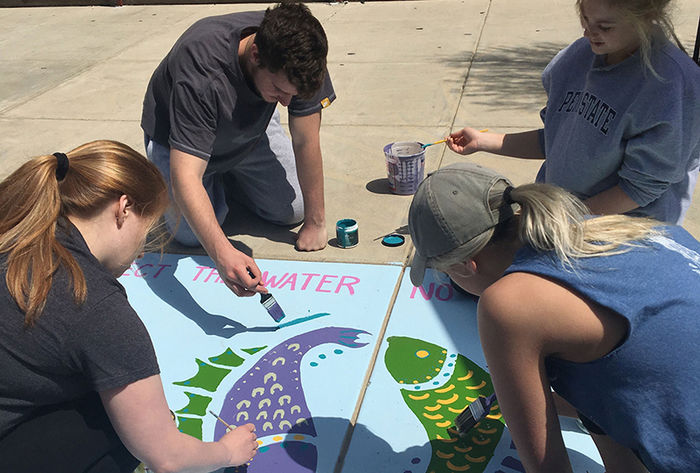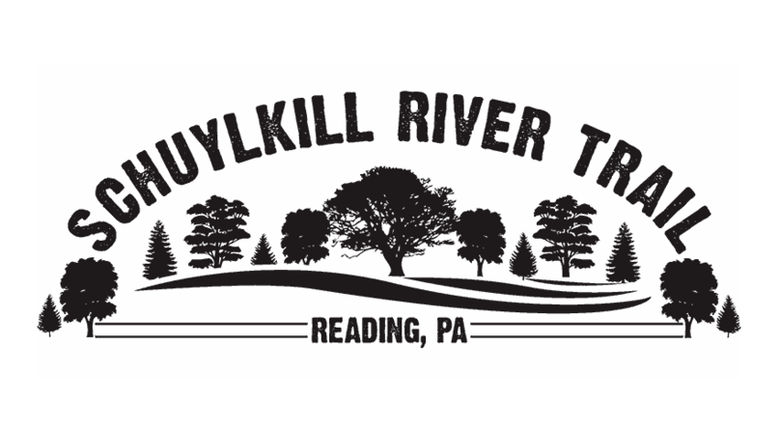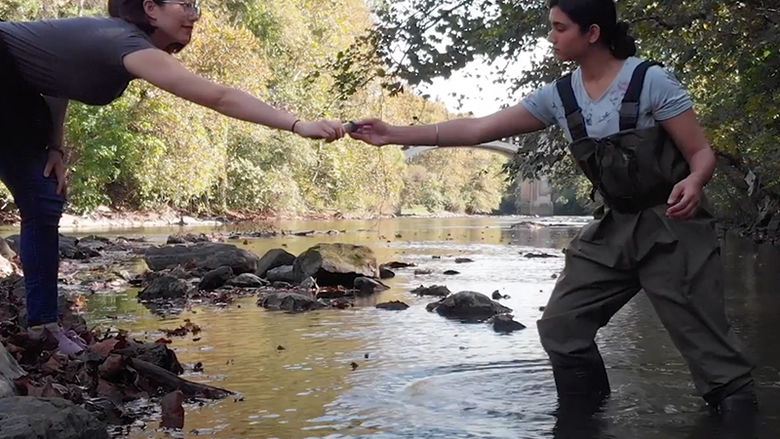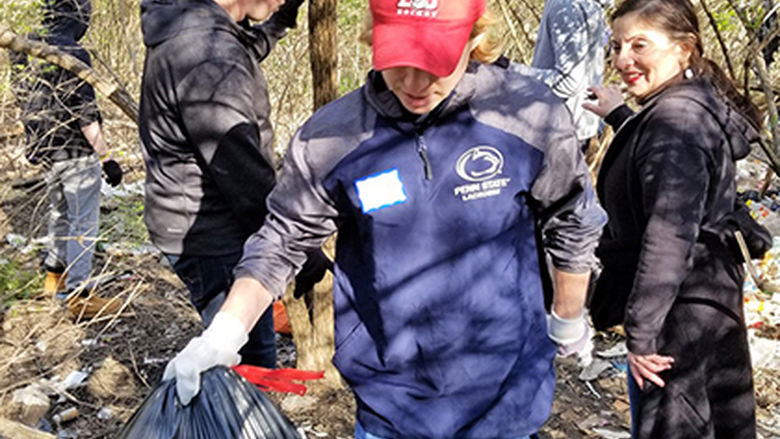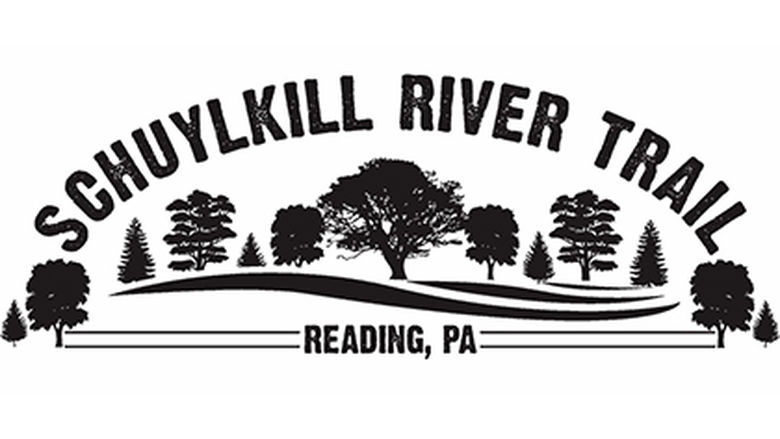
A mural created by Penn State Berks first-year student Eve Donnelly was selected for 12th and Marion Elementary school project.
Penn State Berks teams with Reading Public Works to prevent storm drain pollution
Penn State Berks students teamed up with the City of Reading Public Works Department to implement projects that will inform residents about the harmful effects of dumping chemicals and litter into the storm drains leading into the Schuylkill River.
The students were enrolled in two courses: Environmental Science taught by Mahsa Kazempour and Introductory Painting taught by Danielle D’Aries.
Eight students in the Environmental Science courses researched the effects of chemicals and litter going into storm drains on natural waterways, including the Schuylkill River, and the effect on the entire food chain. Then they took action by stenciling 44 storm drains near 5th and Penn streets in Reading. The stencil, which reads, "No Dumping, Drains to River" in both Spanish and English, informs residents that what goes down the drains ends up in the Schuylkill River.
In the other initiative, four elementary schools in Reading were chosen to receive eye-catching, child-friendly murals created by students in the Introductory Painting course. The schools included 12th and Marion, 13th and Union, Amanda Stoudt, and Northwest Elementary. Students sketched mural ideas, which were presented to City Public Works employees Robert Gensemer and Ted Arentz, for use in their community education MS4 program, a stormwater management program for minimizing the impacts from runoff. After Gensemer and Arentz selected the drawings, D’Aries and her students created stencils for the murals.
These projects were facilitated by the City Public Works Department and the Penn State Berks Center for Service Learning and Community-Based Research.
For additional information, contact Michelle Hnath, program assistant of the Center for Service Learning and Community-Based Research, at 610-914-7595 or via email at mah629@psu.edu.
About the Center for Service Learning and Community-Based Research
The Penn State Center for Service Learning and Community-Based Research supports faculty who involve their students and community partners in collaborative, impactful work. Service learning and community-based research are two instructional strategies that contribute to community well-being and simultaneously enrich students’ course learning. Since its founding in 2010, the center has facilitated nearly 50 academically grounded college-community partnerships. Going beyond conventional concepts of public service that emphasize a one-way process in which the university transfers its expertise to the community, service learning and community-based research is a commitment to sharing and reciprocity, partnerships, and two-way streets defined by mutual respect among the partners for what each brings to the table.
